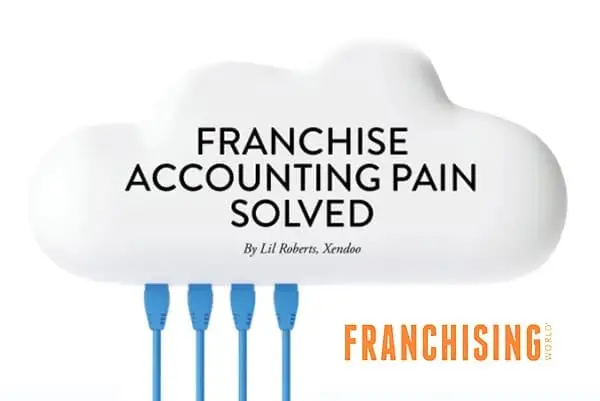7 Last-Minute Tax Tips: Quick Actions Small Business Owners Can Take to Meet the April 15th Deadline

As the April 15th tax deadline approaches, small business owners are on a tight schedule to get their financial books in order and finalize their tax filings. Timely tax preparation ensures compliance with the Internal Revenue Service (IRS) and can maximize potential tax savings. This becomes a critical period in business, and specific strategic actions must be taken so that small businesses remain compliant, maximize returns, and minimize liabilities when filing taxes. This article provides seven actionable tax tips to help small business owners navigate the crunch time effectively. Organizing Financial Records Gathering Necessary Documents and Receipts As one of the basics for filing taxes, small businesses must gather all pertinent financial documents, such as invoices, bank statements, expense receipts, and payroll details. Gathering these documents helps small businesses aggregate and systemize these records to afford a vast, complete record base for use in tax preparation and filing. Utilizing Accounting Software for Efficient Record-Keeping Accounting software simplifies record-keeping, facilitating easier tax preparation and real-time financial tracking. Nowadays, small business owners are privileged to have several programs dedicated to clientele and account record-keeping management. Up-to-date accounting software helps your business to integrate seamlessly with other leading accounting software platforms. It offers you direct access to ensure your business’s financial data is accurate and up to date for filing taxes. Thanks to such tools, financial data can be structured and sorted according to the classification rules in preparation for tax filing. Creating a Checklist to Ensure Nothing Is Overlooked For small business owners, a broad checklist will guard against the usual omissions and assure the inclusion of all required documents and information, which are requisites during the preparation to file taxes. A checklist should comprise the fields of income, deductible expenses, tax documents, and any specific information related to their unique business type. At the end of this financial review, the business owner should have a checklist covering all financial records. Maximizing Deductions and Credits Identifying Eligible Business Expenses Understanding what makes up a deductible business expense helps ensure small businesses make the most of tax-saving opportunities. From home computers and vehicles to social networking-related expenditures to staff and benefits, all business owners should be careful to keep relevant documentation as this will enable them to use the deduction system to the utmost extent. Identifying eligible business expenses helps small business owners take advantage of all possible deductions. Exploring Available Tax Deductions and Credits for Small Businesses The tax code gives an array of deductions and credits meant to support small businesses. Alongside typical business expenses, SME proprietors must check for available pertinent deductions to their sector. For instance, the Small Business Health Care Tax Credit, the Research and Development Tax Credit, and several state and local incentives are all geared towards the same purpose: promoting small businesses. We guide you to strategically employ the most recent tax benefits to lower your taxable income and increase your tax savings. At xendoo, we also keep up with the latest tax benefits to ensure that businesses signed with us get the most out of the benefits. Strategizing to Maximize Tax Savings Strategic tax planning is essential to optimizing small business outcomes. With a thorough knowledge of eligibility for deductions and credits, entrepreneurs can now employ tactics that help them minimize tax liability. This could involve reformatting certain parts of the business systems or making good use of the timing of investments and purchases by aligning them with tax compliance. Our bookkeeping services include expert professional advice on the structure of transactions and operations to maximize available benefits and opportunities by saving more on your tax bill. Navigating Tax Law Changes Highlighting Recent Changes in Tax Laws Affecting Small Businesses Tax laws are constantly changing, and they significantly affect small businesses. Significant updates and modifications are made to initial tax laws as often as monthly. Business owners should consider keeping themselves updated with recent amendments that may frame their filing of return of income, which otherwise can be detrimental to the company due to delayed payments and, in some extreme cases, penalties. Let us help you stay updated with all the changes to ensure your business stays compliant and takes advantage of new opportunities the tax law updates might create. Understanding Implications and Opportunities Presented by Tax Law Updates Effective tax planning considers the implications and impacts of the changes in tax laws and their applicability. Each tax legislation change has pros and cons because of its diverse impacts. Both partnerships and LLCs need to be fully informed about these impacts regardless. These changes bring about essential tax savings if carefully considered. Our book-handling services provide you as a business owner with expert analysis on how changes in tax laws impact your business and alert you to opportunities that will see new provisions for tax savings. Consulting with a Tax Professional for Personalized Guidance Most tax law changes require interpretation. Accounting for complicated tax laws and the high rate of environmental changes leaves small companies with only one option: to reach out to experienced tax lawyers or accountants. These professional consultants can offer personalized advice and tailor it to the specific needs and circumstances of the business so that any unclaimed deductions and credits are discouraged and errors are avoided. Our people-first mentality ensures you receive personalized attention and expert guidance throughout your financial journey. We share your passion and your dedication to making your dreams a reality inspires us. That’s why we’re committed to providing you with the financial visibility and support you need to thrive. We build meaningful relationships with our clients and understand their needs. Utilizing Technology for Efficiency Overview of Tax Preparation Software Options The right tax preparation software can greatly increase efficiency and accuracy during tax filing. In the digital era, small business owners have many tax preparation software applications that can facilitate filing by shortening the time to prepare the returns. Be it user-friendly tools designed specifically for small businesses or more comprehensive solutions covering complex tax scenarios,
Standing Out in a Crowded Market: How to Differentiate Your Business in a Competitive World

Undoubtedly, part of owning a business is understanding that you may face high competition and crowded industries. Knowing how to make your business stand out and what sets it apart from the competition is vital to keep it from fading into the background. In other words, you need to know how to differentiate your business to sell. And once you figure that out, you’ve got to shout it from the rooftops. What Exactly is a Differentiator? The basic definition of a differentiator is a unique set of benefits that sets your business apart from your competition. Understanding what you are good at and highlighting those qualities shows your customers why you are worth putting above your competition and spending more on your product. Overall, differentiators validate your customers in their purchase, and a person who feels confident in their purchase is more likely to continue purchasing from you in the future. Types of Differentiators Though understanding what you’re good at may sound easy, it can be tricky to figure out. Your company can have many types of differentiators. Some of the more popular differentiation factors are based on the customers’ experience, the price of your product, or even your specialization for a specific target market or industry. Pricing your services effectively can also be a powerful differentiator. Say your company’s differentiator is the experience you give your customers and the personality of your business. If you go above and beyond to give your customers a great experience when they are shopping, they’ll remember it. In the best-case scenario, they will tell their friends about how friendly your employees are and how great of an experience they had. Another example could be your expertise in serving a very specific target audience. Say you own a marketing agency that specializes in serving law firms. When a law firm looks for a marketing agency, it’ll appreciate finding one with lots of experience in its field. Questions to Ask to Help Identify Your Differentiators? Having trouble putting your finger on what makes your business special? Don’t worry. We have some simple tips and tricks that can help you. Ask yourself what you do that your competition does not. This is a chance to do market research and analyze how your competition works. Take a look at how they’re advertising themselves. What do they highlight most? What don’t they talk about? Next, list everything your business does that others aren’t talking about (or that you know they don’t do well). Then, write down a list of all the ways you overlap with your competition. Writing down your similarities and differences is a quick and simple exercise that can have long-term benefits and lead to a quick conclusion about your differentiators. Ask yourself what your customers get from choosing your business. This is another way of saying you must be familiar with your customer’s experience. Customer experience: The interaction between a business and a customer over their entire relationship. Map out your company’s entire customer journey. What happens from the first time they hear about your brand through when they become happy, loyal customers? Putting yourself into your customer’s shoes shows you what they’re experiencing as they engage with your business and what benefits they see. From here, you can ask yourself: What type of customers do you help? What are your customers happiest about? Still Having Trouble? Go Straight to the Source Asking your loyal customers what benefits they get from your products or services may be the easiest way to determine your differentiators. Going straight to the source gives you a foolproof and immediate answer that helps you avoid making educated guesses. You might ask them: Did you meet their expectations? Where did you exceed their expectations? Why did they choose you over your competition? What do they like about your business? Got Your Differentiators? Now Brag About Them Knowing how to use your key differentiators is just as important as determining them. Communicating these with your current and potential customers will help them understand how you will help them and what your business stands for. This starts by living and breathing your differentiators. Ensure everyone on your team knows what your business stands for and how you want to portray that through them. The best part of understanding your differentiators is you can use them in your marketing strategy. A solid marketing plan will be useful when capitalizing on your company’s strengths. Highlight these differentiators when creating ads, posting on social media, and talking about your brand, which will let people know what you stand for and offer them. Also, a well-executed marketing strategy will give you a competitive advantage in your industry. Overall, the real importance of differentiation in your business is to stand out and let your customers know what they are getting when using your product. Every few years, you must take a step back and reevaluate the importance and relevance of your company’s differentiators. They might change or stay the same, but keeping them core to your business can put you above your competition. About xendoo We share your passion for small businesses and are inspired by your dedication to making your dreams a reality. That’s why we’re committed to providing you with the financial visibility and support you need to thrive. More Than Just Numbers It’s more than simply crunching numbers. It’s about building meaningful relationships with our clients and understanding their needs. Our people-first mentality ensures you receive personalized attention and expert guidance throughout your financial journey. A One-Stop Solution xendoo offers a comprehensive suite of services, including: Full-service bookkeeping and accounting team to free up your time and resources. Hassle-free tax preparation and filing Fractional CFO Services to work with you on a roadmap of future growth A dashboard that provides real-time financial insights Passionate about your success? xendoo is, too. We provide the financial visibility and support small businesses need to thrive and scale. Let us handle the financial burden so you can focus
Your Franchise Accounting Pain Solved

Franchising World / February 2022 During times of economic challenges, franchising systems tend to remain strong. COVID-19 represented an opportunity in the franchising world, as people were laid off and furloughed due to an unprecedented pandemic. Many took the opportunity to bet on themselves and took the entrepreneurial path to business ownership through owning a franchise. People invest in a franchise because they have a community of support behind them and a proven business model. In addition, the era of COVID-19 presented multiple government programs to support ownership. The result is growth in franchising communities. Creating success is a team effort as franchisees wear many hats. A vital part of creating a successful and mutually beneficial franchisor-franchisee relationship is timely financial insight. Many franchisees rely on a traditional CPA to deliver their financials, but find that the accounting industry is falling behind in terms of technology and cannot provide the monthly reports in a timely manner. Others may resort to do-it-yourself accounting, which cuts into the time that could be spent on sales, marketing and other activities to grow the franchise. The solution lies in the digitization of traditional services, such as expert cloud-based bookkeeping and accounting. This gives valuable time back to franchisees and provides timely, actionable insight to franchisors, which helps them work together to expand the business. Digital Transformation in Franchise Financials When cloud-based accounting is paired with the support of an expert accounting team, franchisees enjoy innovative solutions for their financial needs, including digital bookkeeping along with bank and credit card reconciliation — all done through a tax-saving lens. Each month, key financial reports are generated in their online accounting platform in a timely manner and available to be sent out to the franchisor. A vital part of creating a successful and mutually beneficial franchisor-franchisee relationship is timely financial insight.” For franchisors, timely access to franchisee financials presents the opportunity to understand top-performing trends and best practices. This also enables franchisors to provide guidance and insight to support the growth and success of their franchise community. With the modernization of business, traditional accounting services are falling behind in supporting companies due to a lack of expertise in technology trends in digital-first industries. Non-specialized CPAs may lack the specific knowledge required for franchise bookkeeping, technological connectivity, and time to support the franchisee. Traditional accounting also requires high proficiency and time to accomplish all the necessary tasks. If the franchisee chooses to do their own accounting, it could take time away from other activities essential for growing the business. By pairing cutting-edge software with expert support, cloud-based accounting provides franchisees with accurate, up-to-date financial data. Franchisors are able to focus on expanding their franchise, while the finance experts behind the accounting platform deliver timely insights each month. Franchisees can also use the real-time information to make informed business decisions and seek support from franchisors as early and often as needed. “A vital part of creating a successful and mutually beneficial franchisor-franchisee relationship is timely financial insight.” Accuracy in Item 19 In addition to bolstering franchisee success, timely financial insight helps franchisors answer the number one question asked by prospective franchisees: “How much money will I make?” To respond to questions about profitability, franchisors need to consolidate data from franchisees’ Profit and Loss Statements for Item 19. Item 19 is the franchisor’s opportunity to make oral or written representations about the financial performance of their business and the average net profit of their franchise community. Accuracy is critical to establishing trust and transparency in the sale process to new franchisees. In IFA’s 2021 Economic Outlook for Franchising, FRANdata projected franchise employment to produce nearly 800,000 jobs in the United States by the end of 2021, with franchise establishments increasing at a rate of 3.5 percent. With more and more individuals exploring the franchise space, franchisors have the opportunity to attract new, qualified and forward thinking franchisee candidates. Detailed financial disclosures instill a sense of trust and honesty, enabling franchisors to secure the ideal franchisees for their growing franchise community.” Including Item 19 enables franchisors to provide a complete picture of their franchise’s financial health and set a standard of transparency, while remaining compliant with franchise laws. It gives potential franchisees a data-driven estimate of how profitable they could be by joining the franchise, and enables them to weigh their options and make an informed decision. Detailed financial disclosures instill a sense of trust and honesty, enabling franchisors to secure the ideal franchisees for their growing franchise community. Looking Ahead Accurate and timely financial information is the key to unlocking success for franchisors and franchisees alike. Franchisees thrive on flexible, personalized bookkeeping and accounting support for financial compliance and the reporting necessary to grow their business. Franchisors depend on streamlined reporting to disclose revenue and profit information to prospective owners and provide key performance indicators for new franchisees. As the business world undergoes a digital transformation, cloud-based accounting offers modern franchise businesses the tools they need today to prepare for tomorrow. Lil Roberts is CEO and founder of xendoo, a cloud-based fintech company that specializes in online bookkeeping and accounting for small businesses. For more information about International Franchise Association (IFA) supplier member xendoo, visit franchise.org/suppliers/xendoo-inc.
Lil Roberts: Featured on Inc. Magazine

Capital Ideas Coming to the table November 2021 “I believe you have an audience until you lose them, and if you lose them, you can’t get them back. Talk about the problem, your company’s scalable solution, the company’s traction and stage in the life cycle, and the market size within three minutes. If you’re unable to share those details in under three minutes, you may need to improve your clarity.” Lilian Roberts. Founder and CEO, xendoo.
xendoo vs. Pilot: Comparing Online Bookkeeping Services for Small Business Owners

Bookkeeping is critical to the financial health of every business, but business owners rarely have the time (or desire) to manage it themselves. To take their time back, many business owners choose to outsource their bookkeeping and accounting. There are many options available, from traditional CPAs to tech-savvy online companies. So, how do you choose the right financial partner for your business? Today, we will take a look at two popular providers: xendoo Online Bookkeeping and Pilot. Both provide quality online bookkeeping and tax services, but there are some key differences in features that will help you weigh your options: Online bookkeeping and tax services Accounting software Accounting methods In this blog post, we will explore these key differences so that you can make the best choice for your business! Online Bookkeeping and Tax Services Most of xendoo’s online bookkeeping packages are tax-inclusive, with prices starting at $295 per month. Plans can be paid monthly or annually, whichever works best for you. We reconcile your books weekly, and deliver your reports as early as the 5th business day of the month, depending on the plan you select! Pilot offers three online bookkeeping plans, with prices starting at $599 per month, all of which are paid annually upfront. Tax services are available at an additional cost and must be purchased separately. If you are behind on your bookkeeping, xendoo and Pilot also offer catch-up services so you can get previous months’ books in order! Accounting Software Most small business owners manage their finances in a variety of ways, the more software options, the better! That is why xendoo works with both Quickbooks Online and Xero. Depending on the nature of your business, one of these options will be able to meet your specific needs. Pilot only offers Quickbooks Online. If you are already working in Xero, they will have to switch you to QBO and leave your history behind. While QBO is a solid option, it may not be the ideal choice. Accounting Methods Accounting methods determine when income and expenses are recorded in your financial statements. They affect how cash flow, profitability, and business performance are tracked. The method used depends on your business and tax needs. xendoo and Pilot use different accounting methods, with one exception: cash basis accounting. Depending on the plan you select, xendoo will use a cash basis or modified accrual basis. Pilot defaults to an accrual basis on all plans, but you can request a cash basis. Cash basis accounting is a method in which revenue is reported only when cash is received, and expenses are noted when money leaves your account. It is often used by small businesses because of its straightforward nature. Accrual basis accounting records income once it is invoiced to the customer and records expenses once the bill is entered (even if it has not been paid yet). This is a complex method, used mostly for businesses with $5 million or more in annual revenue. Modified accrual basis accounting combines the best aspects of accrual and cash basis. It recognizes prepaid expenses and offers accrual for inventory and other Balance Sheet categories. As accrual basis accounting is the most complex method, it is the most expensive and time-consuming method to complete. Even if your business needs to account for inventory and accounts payable and receivable, the accrual basis method may not be necessary. The modified accrual method can meet your business needs in a cost-effective and timely manner. We recommend speaking to your accountant to determine the ideal accounting method for your business. Try Us Out xendoo offers a free trial in which we complete your bookkeeping from the previous month, plus the Profit and Loss Statement and Balance Sheet, so you can experience the xendoo difference for yourself. If you decide that xendoo is not the best fit for you, we will gladly connect you with others in our network so you can find your ideal financial partner. The data and reports are yours to keep in your QuickBooks Online or Xero account. If you choose to partner with us, you will have access to a comprehensive customer portal, with data-driven visualizations, and your financial reports at your fingertips 24/7. At this time, Pilot does not offer a free trial. They do weekly demos where business owners can tour the platform and ask questions. For a brief summary of how xendoo and Pilot compare, check out the chart below: Who is Right for You? It depends! Every business owner needs financial visibility into their numbers for effective decision-making and growth. If you are looking to simplify your books, xendoo is the best choice for timely, accurate, and worry-free bookkeeping, accounting, and tax services for you and your business. xendoo is a team of real people that care about you and your business. Allow us to handle the hassles while you put more money in your pocket, reduce your stress, and get back to doing what you love. So, are we a fit for your business? Let’s talk! Schedule your free consultation today!
Top 7 Requirements to Secure Ecommerce Funding (Hint: They’re Not What You Think)

In the past, online sellers often had to dig into their own pockets to fund their eCommerce business dreams. Since small or growing businesses are technically high-risk investments, banks and other financial institutions were reluctant to part with their cash to help eCommerce sellers. But times have changed. Today, there is a growing number of funding options eCommerce entrepreneurs can tap into to make even their biggest, hairiest goals reality. Great news, given that 9.5% of businesses without financial capital say it negatively impacts their profitability. Yet, many eCommerce sellers are stuck in their ways, seeking capital from red tape-heavy banks or going without any funding support at all. In fact, a staggering 50% of UK SMEs don’t look beyond traditional funders—and the tunnel vision can definitely cost them. The good news? It doesn’t have to be this way. To prepare you to face your next funding application with confidence, let’s jump into some of the requirements you’ll need. Ready for a flexible funding solution? Learn more about how we help eCommerce owners improve their cash flow. Secure ECommerce Funding the Simple Way How to Fund an Ecommerce Business: Know Your Options What Do I Need to Secure Ecommerce Funding? 1. Proof your business is on the right track 2. Know what eCommerce funding you need (and what for) 3. Showcase your good moral character 4. Get your paperwork in order 5. Show off a little 6. Clean up your credit, stash away cash, and get collateral (but not for the reasons you think) 7. Be mentally prepared to move on The Blueprint for Getting Your Ecommerce Business Funded How to Fund an Ecommerce Business: Know Your Options Ecommerce funding has come a long way since its inception, and there is now a potential capital source to suit every business size and budget. Here’s a quick rundown of the most common eCommerce funding options: Working capital: The seller receives funding to cover gaps in cash flow for day-to-day business expenses like shipping costs, supplies and utilities, or invest in a new product line, ad campaign or additional inventory for peak sales seasons. Cash advances: The seller receives a lump sum and agrees to pay a percentage of their monthly turnover to the lender until the advance is paid in full—note: cash advances aren’t loans. Invoice factoring: The business owner sells their accounts receivables (due invoices) to a factoring company at a discount with fees added on top. The factoring company then releases the funds to them. Crowdfunding: The entrepreneur pitches their idea on a dedicated online platform to the masses, and individuals can choose to invest. There are three kinds of crowdfunding: debt, donation, and equity crowdfunding. Peer-to-peer lending: Usually facilitated through an online platform, the individual receives funding from a person instead of a financial institution. Angel investing: The business owner sells a stake in their business to a high-net-worth individual in return for capital. Are you struggling to decide between cash advances and working capital loans? We can help. What Do I Need to Secure Ecommerce Funding? Thanks to the flexibility of some of the newer, more modern funding options, today’s funding requirements for growing eCommerce businesses tend to be much more flexible than those of traditional funders. While most alternative eCommerce funders won’t throw out your application for lacking things like management expertise, collateral, or credit, there are some standards you’ll have to meet. Let’s break these down: 1. Proof your business is on the right track Alternative funding providers are all about businesses with results that prove they’ve got a promising future. No matter who you acquire eCommerce funding from, there’s one thing your provider will want to know: that they’ll get their money back plus a fair return. While you don’t have to be the next overnight Amazon sensation to prove your worth, you must show you’re a viable business and a low-risk investment. Here are some things you can provide to show your business is worth the investment: Calculations that demonstrate your business has a high ROI, net operating income, and Debt Service Coverage Ratio (DSCR). (More on this in a minute ). Documents proving your business consistently turns a profit. Store reports showing sales volume and minimal product returns. Statements demonstrating you have sufficient liquidity to repay a loan, plus its interest and charges. Records showing you’ve been in operation for at least 12 months. If you meet these requirements, securing funding becomes a win-win situation for everyone, and you’ll have better chances of getting approved. Looking for a faster solution? Find out how you can pre-qualify for up to $1,000,000 in less than 5 minutes. 2. Know what eCommerce funding you need (and why you need it) By the time you’re ready to start sending applications to prospective funding providers, you should have concrete answers to these things: Your reason(s) for applying for external funding. The intended purpose of the cash injection. How much capital you need. Not only will this help narrow down the type of funding you need (and suitable providers), it’ll also show you’ve done your due diligence. Taking on funding is no child’s play, and mistakes in this area can cost you. Funding providers want to know you understand the risks involved and are prepared to take on this commitment. Here’s how to show eCommerce funders you’re ready, step-by-step: Create a documented breakdown of the capital amount you need for each task (adjusted with a buffer for unplanned bills). Work out your return on investment (ROI). Are you making enough returns to make funding feasible? Note long term debt reduces ROI. Analyse your net profit income. How healthy is it? Will you have enough liquidity in your business to operate once you start to repay successfully? Assess whether any existing debts will inhibit you from making repayments. Calculate your Debt Service Coverage Ratio (DSCR) to help you with this task. These are the three equations you’ll need: 1. ROI % = (Net profit) / Cost Of Goods
Eight Tax Tips for Restaurant Owners

Between accounting for all of your potential deductions and reporting them all accurately, it’s important to have a professional who can help make sure you don’t miss anything. Here’s seven tips to help you get everything mise en place come tax time.
